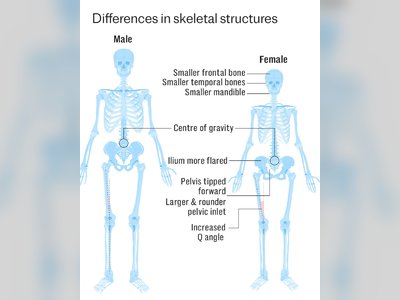Manila Times
Upholding Truth. Empowering the Philippines
Monday, Dec 08, 2025
The Nation's Story is Told with Honor
Trump Urges Intel CEO Lip-Bu Tan to Resign Over Alleged Chinese Business Ties
President Donald Trump has called for the resignation of Intel’s chief executive Lip-Bu Tan, citing past investments in Chinese companies as lawmakers scrutinize technology sector links to China
On 7 August 2025, U.S. President Donald Trump demanded the immediate resignation of Intel Corporation’s chief executive officer, Lip-Bu Tan, alleging that Tan’s previous business dealings created conflicts of interest due to investments in Chinese companies, including firms with reported links to China’s military.
The remarks followed a formal letter from Senator Tom Cotton to Intel’s board raising concerns over Tan’s investment record.
Tan, a Malaysian-born U.S. citizen raised in Singapore, was appointed Intel’s CEO in March 2025 to lead a corporate turnaround after years of declining competitiveness in semiconductor manufacturing.
He is the founder of Walden International, a venture capital firm that invested in hundreds of Chinese companies between 2012 and late 2024, according to public filings.
Several of those firms were later placed under U.S. trade restrictions.
Senator Cotton’s letter also referenced a July 2025 plea agreement by Cadence Design Systems’ Chinese subsidiary to violations of U.S. export control laws.
The subsidiary admitted to selling chip design technology to China’s National University of Defense Technology, an institution on the U.S. Entity List for its military affiliations.
Cadence agreed to pay more than $140 million in penalties.
Intel has stated that both the company and its CEO are committed to advancing U.S. national and economic security and to making investments consistent with U.S. policy priorities.
In an internal communication, Tan described the allegations as misinformation about his past professional roles, saying that throughout more than four decades in the technology sector he has adhered to legal and ethical standards.
The dispute comes as Intel continues to receive substantial U.S. government support under the CHIPS and Science Act.
In November 2024, the Department of Commerce announced $7.86 billion in direct funding for Intel projects in Arizona, New Mexico, Ohio, and Oregon, with additional federal loans available.
The funding is intended to expand domestic chip production and strengthen supply chain security.
The controversy over Tan’s appointment adds to ongoing political scrutiny of technology executives with past connections to Chinese markets.
In 2024, the chief executive of TikTok appeared before the U.S. Senate Judiciary Committee and denied having any ties to the Chinese Communist Party or holding Chinese citizenship.
Intel’s share price fell by nearly 3% during intraday trading on 8 August 2025 following Trump’s remarks.
The company continues to face competitive pressure from Taiwan Semiconductor Manufacturing Company and other global rivals while seeking to advance its 18A manufacturing process.
The remarks followed a formal letter from Senator Tom Cotton to Intel’s board raising concerns over Tan’s investment record.
Tan, a Malaysian-born U.S. citizen raised in Singapore, was appointed Intel’s CEO in March 2025 to lead a corporate turnaround after years of declining competitiveness in semiconductor manufacturing.
He is the founder of Walden International, a venture capital firm that invested in hundreds of Chinese companies between 2012 and late 2024, according to public filings.
Several of those firms were later placed under U.S. trade restrictions.
Senator Cotton’s letter also referenced a July 2025 plea agreement by Cadence Design Systems’ Chinese subsidiary to violations of U.S. export control laws.
The subsidiary admitted to selling chip design technology to China’s National University of Defense Technology, an institution on the U.S. Entity List for its military affiliations.
Cadence agreed to pay more than $140 million in penalties.
Intel has stated that both the company and its CEO are committed to advancing U.S. national and economic security and to making investments consistent with U.S. policy priorities.
In an internal communication, Tan described the allegations as misinformation about his past professional roles, saying that throughout more than four decades in the technology sector he has adhered to legal and ethical standards.
The dispute comes as Intel continues to receive substantial U.S. government support under the CHIPS and Science Act.
In November 2024, the Department of Commerce announced $7.86 billion in direct funding for Intel projects in Arizona, New Mexico, Ohio, and Oregon, with additional federal loans available.
The funding is intended to expand domestic chip production and strengthen supply chain security.
The controversy over Tan’s appointment adds to ongoing political scrutiny of technology executives with past connections to Chinese markets.
In 2024, the chief executive of TikTok appeared before the U.S. Senate Judiciary Committee and denied having any ties to the Chinese Communist Party or holding Chinese citizenship.
Intel’s share price fell by nearly 3% during intraday trading on 8 August 2025 following Trump’s remarks.
The company continues to face competitive pressure from Taiwan Semiconductor Manufacturing Company and other global rivals while seeking to advance its 18A manufacturing process.
AI Disclaimer: An advanced artificial intelligence (AI) system generated the content of this page on its own. This innovative technology conducts extensive research from a variety of reliable sources, performs rigorous fact-checking and verification, cleans up and balances biased or manipulated content, and presents a minimal factual summary that is just enough yet essential for you to function as an informed and educated citizen. Please keep in mind, however, that this system is an evolving technology, and as a result, the article may contain accidental inaccuracies or errors. We urge you to help us improve our site by reporting any inaccuracies you find using the "Contact Us" link at the bottom of this page. Your helpful feedback helps us improve our system and deliver more precise content. When you find an article of interest here, please look for the full and extensive coverage of this topic in traditional news sources, as they are written by professional journalists that we try to support, not replace. We appreciate your understanding and assistance.









